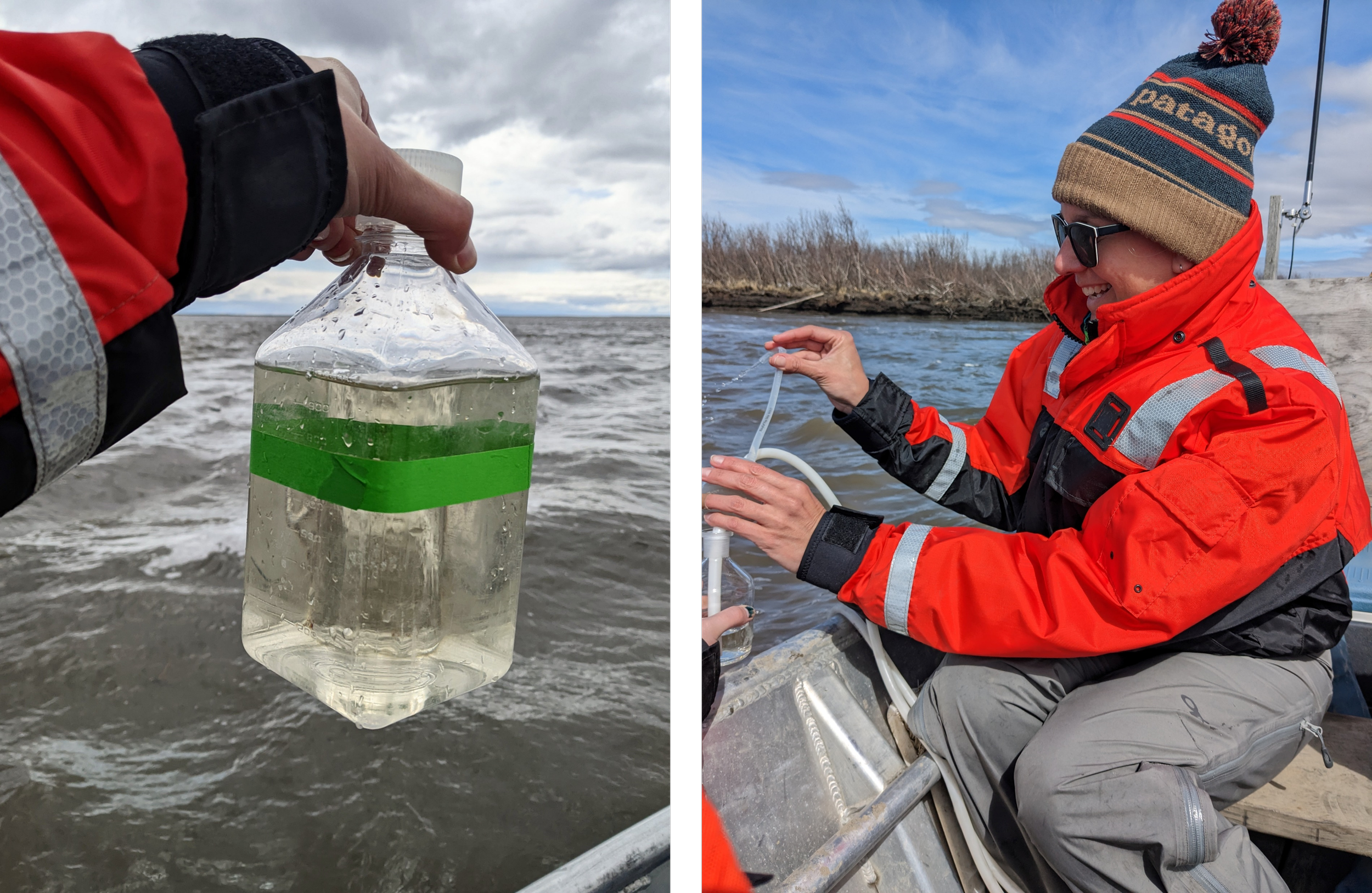Charred peat moss tufts in the tundra.
Wildfires produce charcoal, also termed black carbon, which is resistant to breakdown and is environmentally long-lived. A portion of this charred material is dissolved upon interaction with water and is carried away from soils to rivers as dissolved black carbon (DBC). A warmer and drier climate has led to increased wildfire activity in Arctic regions and it is unknown how these changes will affect the amount of DBC in rivers and its fate in the coastal environment. In the summer of 2022, the Apoon Pass and East Fork Fires burned >255,000 acres in the Yukon River Delta (Alaska, USA), part of a trend towards larger and more frequent wildfires in the Delta in recent years. Sasha Wagner and her co-PIs Rob Spencer and Anne Kellerman (Florida State University) received NSF RAPID funding to determine whether recent wildfire activity in the Delta leads to increased amounts of DBC along the Yukon River and estuary to the coastal Arctic Ocean. Results of this work will lay the groundwork for future, large-scale studies on fire-derived carbon in vulnerable Arctic watersheds. This work builds upon other efforts to predict the effects of climate change on carbon cycling in Arctic-boreal landscapes and will assist in answering broad research questions regarding the behavior of DBC in intermediate reservoirs and fate of terrestrial organic matter in the coastal ocean.
Last month, Sasha Wagner and her PhD student, Maddy Miller, traveled with a small team of researchers to the village of Alukanuk to sample remote areas of the Yukon River Delta during the 2023 spring freshet, when snow and ice melt result in a large pulse of water and material from upstream to the river mouth. They spent a total of 4 days on small boats traveling to various lakes, channels, mainstem, coastal, and burned tundra sites where they collected water, soil, and charcoal samples. Over the next few months, Maddy will prepare and analyze samples for DBC and compound-specific stable carbon isotopes to assess the effects of wildfire on carbon export in the Delta. The team is grateful for the knowledge, hospitality, and support from the Alukanuk community, without whom this research would not be possible.
Left - Photo of the research team, including (from left to right) Harrison Smith (NASA), Maddy Miller (RPI), Sasha Wagner (RPI), Sonny Isadore (boat captain), Alexis Slentz (FSU), and Alyssa Burns (UC Davis). Right - Enjoying akutaq (Eskimo ice cream) in the burned tundra. So thankful for this amazing group of people!
Left - Taking progressively smaller planes out to the edge of the Yukon River Delta. Right - View of the Delta from the air.
Driving out in search of salty water - It was hard to find some because the river plume was so big!
Maddy and Alexis filtering large volumes of Yukon River water.
We saw so many moose!
Left - Look at all that lovely dissolved organic matter! Right - Sasha filtering water samples.







